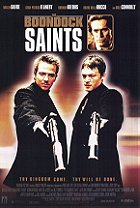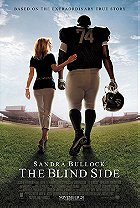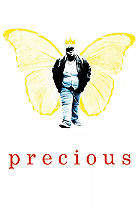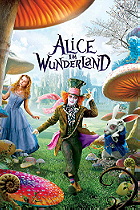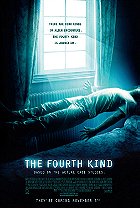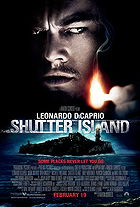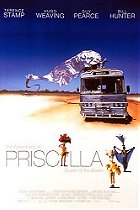A full decade after The Boondock Saints was unceremoniously dumped in a total of five cinemas Americawide, writer-director Troy Duffy has at long last pulled together The Boondock Saints II: All Saints Day; the long-shot sequel that fans of the original yearned for but never thought they'd ever see. For the uninitiated, here's everything you need to know: 1999's The Boondock Saints is a textbook example of a cult classic. After flopping in theatres, it headed straight to video where it garnered legions of fans and grossed about $50 million in domestic video sales. Thanks to these strong numbers, this sequel eventually became a reality. Thankfully, there's no doubt those who enjoyed the original film will embrace this follow-up, as all the elements that made the original so popular are carried over into the sequel: there's the gratuitous, techno-scored violence, the incredibly quotable, hilarious dialogue, and the self-righteous vigilante attitudes. Heck, the sequel even recaptured the reception of the original film: audiences generally enjoyed it, while critics bashed it severely.
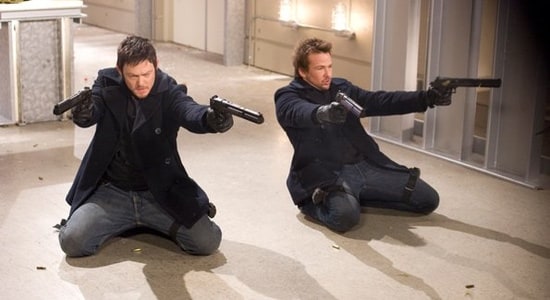
The Boondock Saints II: All Saints Day focuses on the titular Saints: Murphy (Reedus) and Connor (Flanery) MacManus. Ever since publically executing a mob boss, the brothers have been living on a sheep farm in isolated Ireland with their father (Connolly). However, they leap into action when word reaches them that a Boston priest has been killed using the Saints' trademark execution style. Though the brothers know the murder is meant to draw them out of hiding, they're all too happy to oblige the killer and dish out vengeful justice in return. During the journey back to Boston, they encounter a Mexican-American named Romeo (Collins Jr.) who adores the work of the brothers, and is made part of their entourage. Meanwhile, FBI agent Eunice Bloom (Benz), the protégé of the first film's Paul Smecker (played by Willem Dafoe), is on the trail of the brothers.
In short, The Boondock Saints II is a sequel that's strictly for the fans of the first film - in fact, it's one big valentine and a thanks to all those who contributed to its cult success. This movie does not need to (or seem to want to) appeal to anyone else, since you must have seen the original in order to follow Part 2 anyway. Fortunately, Duffy gives his fans exactly what they crave here, and then some. He even adheres to a structure that's virtually identical to its predecessor, with the crime scenes being shown after the killings have taken place before someone steps in to begin theorising how it all went down.

The one big problem with this film is that, despite a few twists and revelations, The Boondock Saints II is almost a remake of its predecessor, right down to the structure and supporting characters (with Julie Benz as an FBI agent similar to Willem Dafoe, and Collins Jr.'s performance as Romeo clearly paralleling the original's Rocco). The dialogue, while still sparkling and bursting with one-liners, does not contain any exchanges as memorable as the best moments of the first film, and there are lags in pace due to this. Most of these flaws, however, are skilfully masked by Troy Duffy's great eye for action. He may have shown an ugly side to his personality in the documentary Overnight, but the rousing, exciting shootouts are handled with an adept touch by the filmmaker. The Boondock Saints II is especially well-crafted and looks great, with accomplished cinematography and eye-catching visuals. The climax in particular is a humdinger. The only problem with the shootouts, however, is the distinct lack of realism. The hook is that the Saints plan to execute mobsters in scenarios gleaned from movies and they have trouble replicating said scenarios in the real world, but - for all this realistic insistency - the boys rarely run out of ammo and seem to be bulletproof.
Both Norman Reedus and Sean Patrick Flanery are terrific as the MacManus brothers. The two bounce off each other hysterically, and it's impressive the way the two are able to shift between humour and drama. The onscreen relationship is incredibly entertaining, and the two clearly having fun translates well for the audience. It's also great to see Billy Connolly making his return, as he plays off the boys quite amusingly.
Astonishingly, virtually every member of the cast of the original film returns here, along with a few newcomers that add a little fun to the proceedings. Julie Benz clearly relished the chance to play the role of Eunice Bloom and she's fun to watch, but she doesn't convey the necessary quirkiness to make the oddball investigator role as great as Willem Dafoe's work. Playing Romeo, Clifton Collins Jr. adds another colourful character to his cinematic repertoire. He's very entertaining, though not as brilliant as David Della Rocco's performance in the first film.

To be sure, The Boondock Saints II: All Saints Day is not as good as its predecessor, but Duffy has successfully replicated the spirit of the original film; a feat not many sequels can achieve. Taken on its own merits, this is a well-crafted, well-written, quirky action-comedy imbued with a dark sense of humour that's buoyed by endearing performances from the two leads. It's not perfect due to its derivative and at times juvenile nature, but I know a fun movie when I experience one, and this is one of the most devilishly enjoyable motion pictures of 2009.
8.1/10
 Login
Login
 Home
Home 183 Lists
183 Lists 1674 Reviews
1674 Reviews Collections
Collections
 0 comments,
0 comments, 